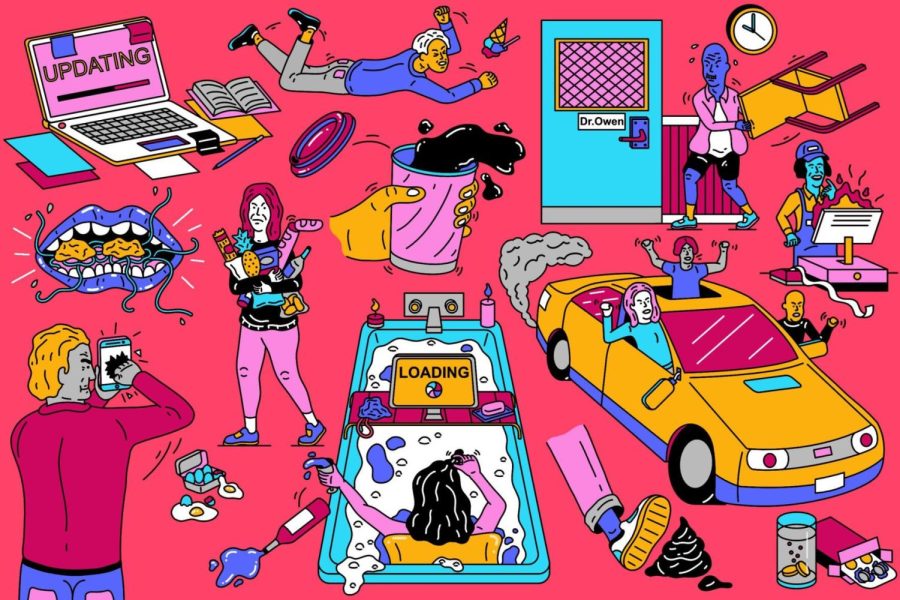The Loss of Patience: Why We Can’t Wait Anymore
Courtesy of The New York Times/ James Clapham
In the modern age, people have more and more trouble with patience.
April 7, 2021
Our phones and other various technological devices have become literal extensions of our physical bodies. Our phones follow us everywhere, and it is rare to see someone walking through campus without their phone in their hand or their eyes glued to a screen. It’s been almost a year since the world entered a global lockdown and people were physically stuck with nothing but their family and their devices. With screen time rising and motivation decreasing, the ease, comfort and accessibility of technology has negatively affected almost all groups of people.
Technology has been designed to grab our attention for long amounts of time. Applications that grant us instant gratification, such as TikTok, are able to grab our attention and keep it. The fast-paced behavior of TikTok is also the culprit behind the decrease in the attention spans of technology users. On TikTok, there is a new video every 15-60 seconds. The “For You” page is also designed to show new videos every time you refresh the page or open the app. Boredom may never be achieved with the “tailored to you” algorithm. TikTok is a constant waterfall of fast-moving content that pleases the desire for fast-moving satisfaction. TikTok is one of the many reasons why people find it hard to watch a movie, YouTube videos or Netflix: the content is just not developing fast enough. Our brains have become so used to jumping our focus from one thing to the next that it is extremely hard to remain focused and present while watching something of a longer duration.
This also applies to school – especially school. Whether it be an online or an in-person lecture, the focus that classes command is out of many people’s abilities. Katherine Hayles, an English teacher at U.C.L.A, has witnessed her students go from being able to remain deeply attentive to only being able to hyperfocus and skim the surface of many assignments and lectures. Like U.C.L.A, Columbia has also begun to modify its teaching methods. With its core curriculum being extremely heavy on reading, professors have been trying to figure out different ways to cater to today’s students. The main focus is altering the teaching, and maybe even the curriculum, to cater to students whose attention spans have decreased over the last few years.
“This is us: eyes glazed, mouth open, neck crooked, trapped in dopamine loops and filter bubbles,” The New York Times said. “Our attention is sold to advertisers, along with our data, and handed back to us tattered and piecemeal.”
No one is to blame for this phenomenon besides the big tech companies that profit off our demise. Phones, laptops and apps alike have all been designed to capture us, our attention, our data and our money. With college students being the group largely affected due to the upbringing alongside technology, all generations below will also be just as affected. Just think of all the babies and toddlers glued to iPads.
The only thing that can be done now is to utilize the screen-time restrictions. By allotting a certain amount of time to an app and having a friend set a password for it, you will be prompted off of an app as soon as that time is up, and unless your friend is willing to let you fail and enter the password, you won’t be able to continue on the app and will be forced off. There is of course the other option, which is to stop giving kids iPads altogether.


